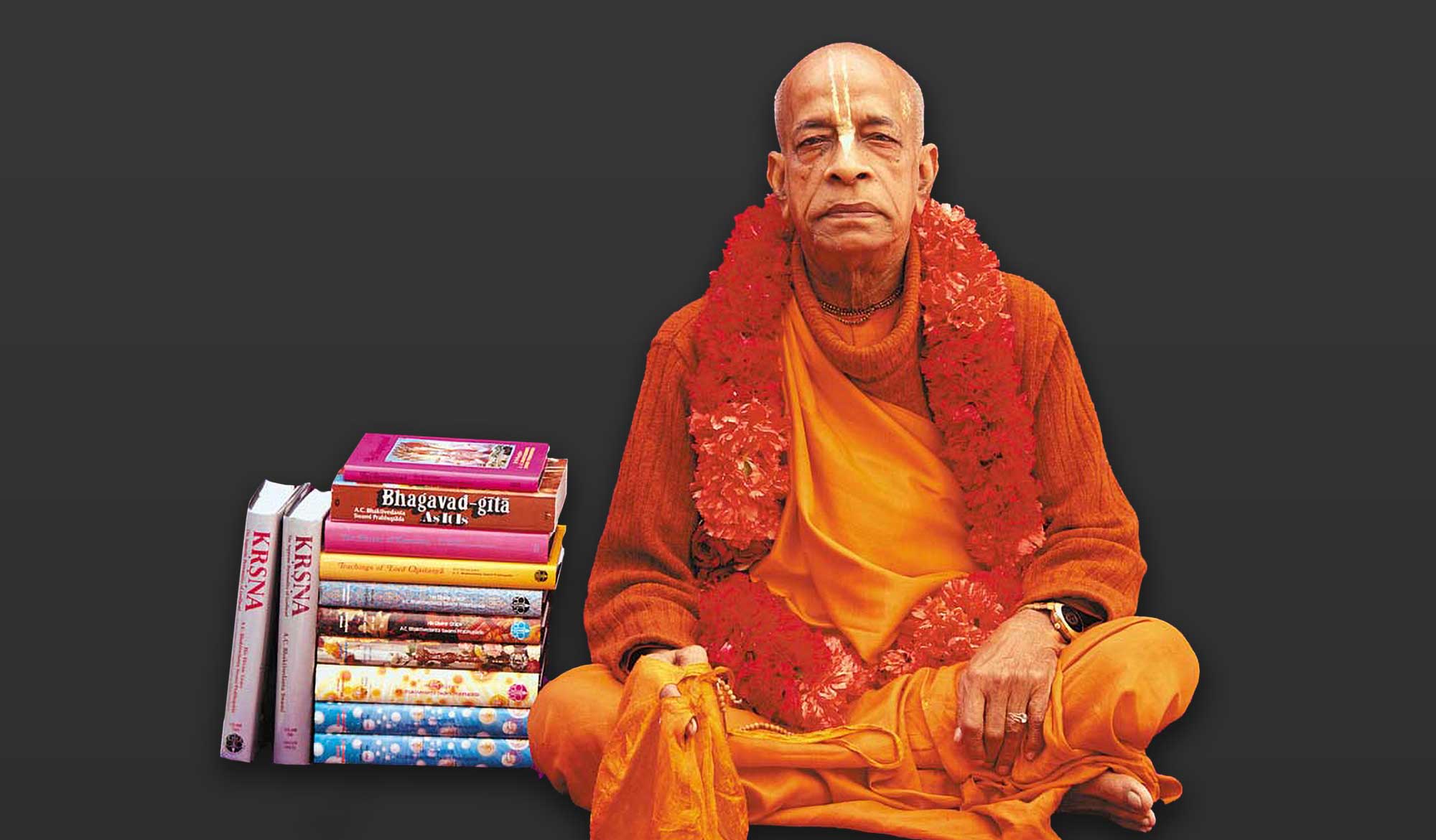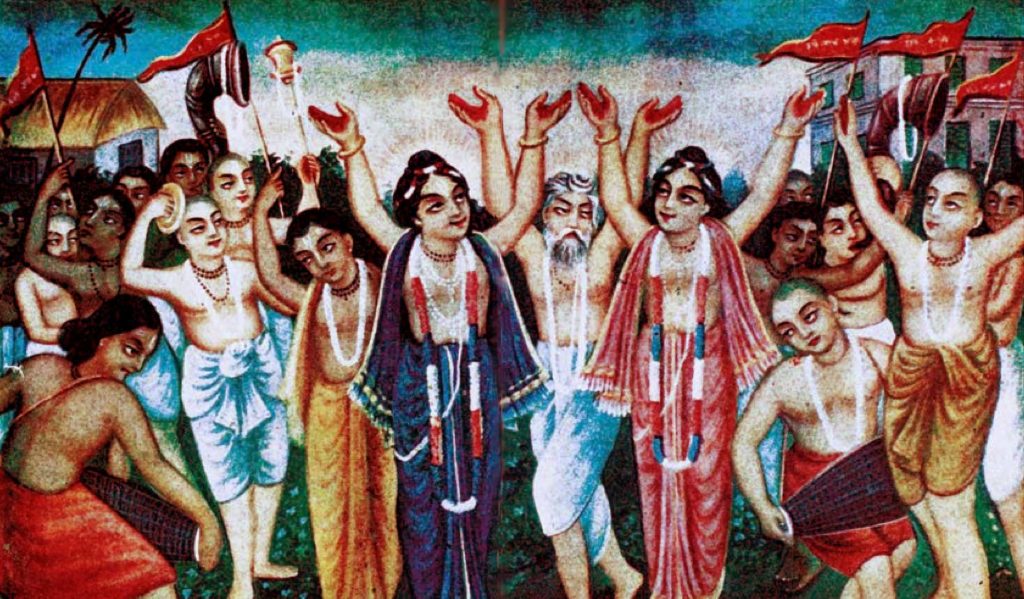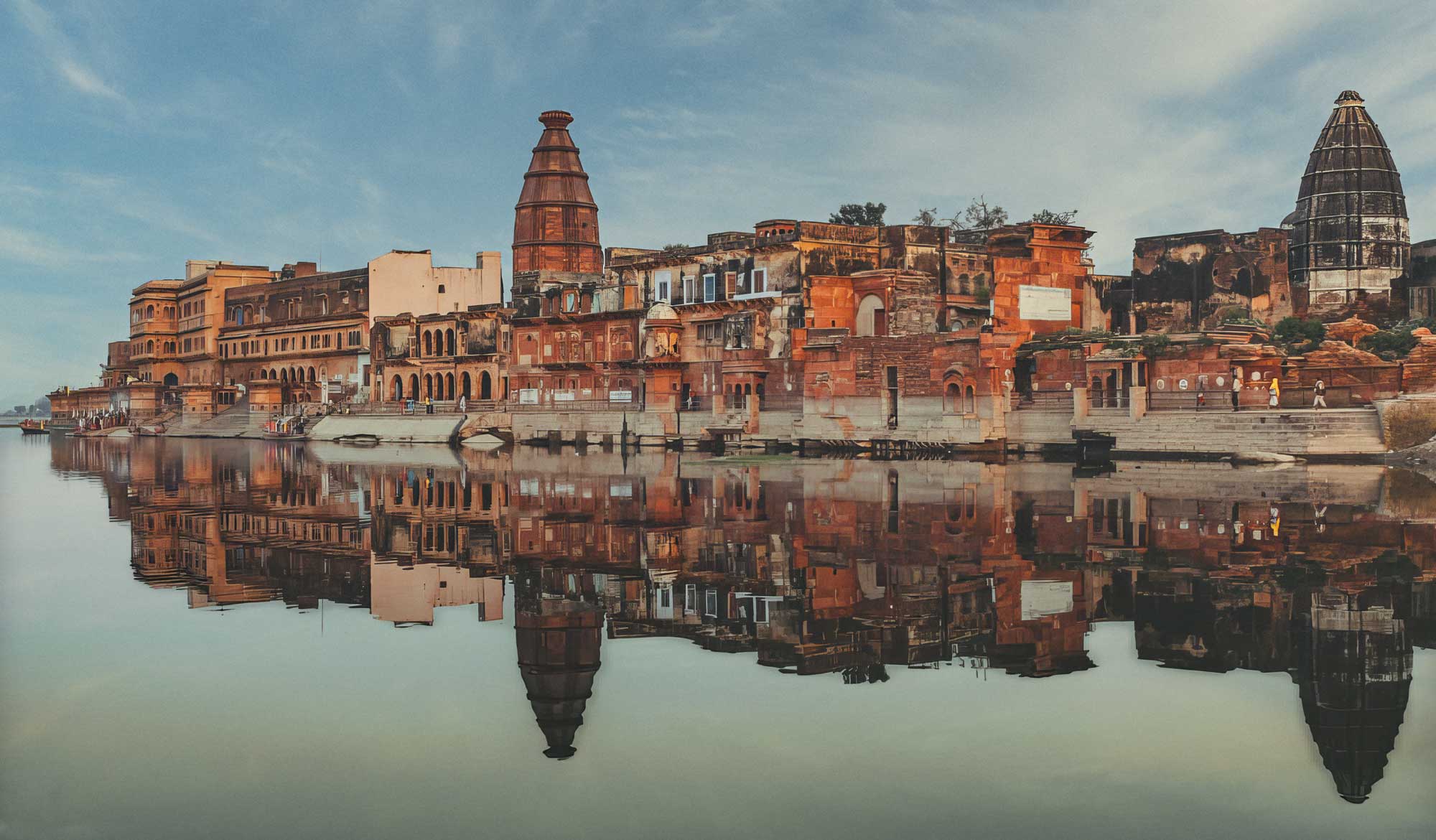Overview
'The Change Disease' by Gaura Gopāla Dāsa highlights the magnitude of the changes that have been made to the books of Śrīla A.C. Bhaktivedānta Swami Prabhupāda and what kind of problems are caused by this diseased mentality of thinking one knows better than their guru.
What Book Changes?
It is surprising to me how many devotees are still unaware of the magnitude of the changes made to Śrīla Prabhupāda’s books. The changes began after Prabhupāda’s departure and were made by a handful of devotees who did not consult with the broader community of godbrothers and godsisters at the time and have continued unabated ever since. What most devotees assumed was simply correcting spelling errors and punctuation was much, much more. It is only now becoming clearer with the passing of time, and by comparing the original books with the new edited editions. Some changes are superficial, but there are also many that entirely alter the original meaning given by Prabhupāda.
Prabhupāda Authorized Edits During His Lifetime
It is true that during Prabhupāda’s lifetime there were changes made to his books, but this was done under his supervision. This mostly pertained to egregious spelling errors or mis-translations by his disciples. However, Prabhupāda was deeply concerned with what he called the western “change disease”.
Are Prabhupāda’s Books Śāstra?
Śāstra does not only refer to those works that are apauruṣeyā (given directly by the Lord such as the Vedas which are untouched by humans). The literal meaning of the word Śāstra is “that which has been instructed or decreed”, from the root word Śāsana. There are so many śāstras relating to many topics – for example, the yoga-śāstra and mīmāṁsā-śāstra written by the ṛṣis, and the gosvāmī-śāstra from our illustrious preceptors who codified the teachings of Śrī Caitanya Mahāprabhu. When an ācarya like Jīva Gosvāmī or Baladeva Vidyābhūṣaṇa writes a commentary on a core text, then this is considered śāstra by any definition. Prabhupāda has written extensive commentaries on the most important literature of our Gaudiya Vaiṣṇava line – Caitanya-caritāmṛta, Śrīmad Bhāgavatam and Bhagavad-gīta. Therefore, his books are śāstra.
Prabhupāda’s books are not just śāstra written by him alone. They also include many portions of the commentaries of Baladeva Vidyābhūṣaṇa, Viśvanātha Cakravartī Ṭhākura, Jīva Gosvāmī, Bhaktivinoda Ṭhākura and Bhaktisiddhānta Sarasvatī Ṭhākura. So our entire Vaiṣṇava lineage is also included within his works. When someone decides to edit the works of Śrīla Prabhupāda after his disappearance, they aren’t just editing his works, but also those of the previous ācāryas that he quotes.
Who would dare to correct the Bengali of Bhaktivinoda Ṭhākura or of Sarasvatī Ṭhākura? Or how about Jīva Gosvāmī’s Sanskrit? Would we ever think of going back to try and correct any errors in his syntax to make his words clearer? So what is the excuse for editing Prabhupāda’s books? Is it because some editors think that, “Well, I was born in America, so I know English better than Śrīla Prabhupāda!” By these changes they slowly erase his voice, his mannerisms, his speech pattern and the expressions of His Divine Grace. This is part of the charm of our guru-varga. They are not all uniform in their expressions about the Absolute Truth. Their voices are variegated and unique and one can understand who is speaking through their writings.
Who edits the Ācārya’s Works After His Lifetime?
There is no other Vaiṣṇava society in the world that changes the books of their guru after he has left this world. His writings are his legacy – in effect, they are the vāṇī of the guru. Even secular academics do not change the words of Shakespeare and other famous authors. They will simply add footnotes or comment on the original text. When even mundane scholars understand this salient point concerning worldly books, how is it that devotees have the audacity to edit the books of Śrīla Prabhupāda, thinking that they can make them ’sound better’ to academia? Are we preaching to academics? Will the scholars of the world unite behind Prabhupāda’s books and take to the process of bhakti if the grammar in Prabhupāda’s books is more suited to their tastes? Did Prabhupāda write his books for academics, or did he write them for the devotees? The very people who are changing the books of Prabhupāda were made devotees through the original, unedited versions! In every recorded class of Śrīla Prabhupāda, he is reading from the original books. He made a worldwide preaching movement with them and enthused thousands of people to take up this path! Where is the lack?
Nāma-Aparādha (Offences to the Holy Name)
By hearing from my own Gurudeva, Śrīla Bhakti Gaurava Narasiṅgha Mahārāja about the offences to the Holy Name, it could be argued that the level of editing Prabhupāda’s books (such as restructuring sentences and changing their meanings) encompasses two nāma-aparādhas – the offence of considering the guru to be an ordinary jīva and neglecting his instructions (“Do not change my words!”) and the fourth offense of śāstra-nindā (offending the śāstra).
An Exceptional Vision
I heard a wonderful explanation from the song “Guru Vandana” by Narottama Dāsa Ṭhākura – prema-bhakti jāhā haite, avidyā vināśa yāte (‘From him ecstatic prema emanates and by him ignorance is destroyed’). Śrīpāda Prema Kiśora Prabhu, a direct disciple of His Divine Grace Śrīla Prabhupāda and Śrīla Bhakti Rakṣaka Śrīdhara Deva Gosvāmī, explained that this prema bhakti that is emanating from the guru (Śrīla Prabhupāda) are his books that are destroying the ignorance of those sincere seekers coming in touch with them. He further explained:
“Śrīla Prabhupāda beckoned Śrīmati Rādharāṇī to help him fulfil the order of his guru, so Kṛṣṇa was obliged to do so. It was Her inspiration that inspired Kṛṣṇa to guide Śrīla Prabhupāda in the writing of his books. So this prema that is flowing through the pen of Śrīla Prabhupāda is ultimately caused by Śrīmatī Rādharāṇī coming through Rūpa Gosvāmī to Bhaktivinoda Ṭhākura, then from Sarasvatī Ṭhākura to Śrīla Prabhupāda. How can anyone in the three worlds improve on that, or even imagine touching it in any way, shape, or form?”
This explanation strikes at the very heart of the matter. With this angle of vision, things are very simple and clear. There can be no doubt as to what is the right approach.
Prabhupāda as a Śaktyāveśa-avatāra
Śrīla Prabhupāda was considered by his esteemed godbrother Śrīla Śrīdhara Mahārāja to be Nityānandāveśa (a manifestation of the potency of Nityānanda Prabhu). In other words, a saktyaveśa-avatāra – empowered by the Lord Himself to carry out his service. Thus, from that angle of vision, by altering the words of a personality empowered by Śrī Nityānanda Prabhu, and considering what Śrīla Prabhupāda himself said about his books (“I did not write these books, Kṛṣṇa wrote these books”), you are altering the divine flow coming from Kṛṣṇa through him. How can you possibly think you can improve on this?
The Long Term Effect
The editing process has already gone too far during one generation. It has set a precedent that these books can be edited by each successive generation of devotees to fit the style and social norms of the time they live in. In such a short span of time since Śrīla Prabhupāda’s preaching mission was established, devotees are bowing to the whims of material society and trying to mold Kṛṣṇa Consciousness to conform with the relative material world rather than the other way around. Prabhupāda’s books and Kṛṣṇa Consciousness are all-inclusive. It does not require reform.
Now, the current generations is reading Prabhupāda’s books through the filter of the editors and are not reading his unadulterated flow. This type of meddling will not make more pure devotees. It will hinder the progress of so many souls and add more apa-siddhānta to the already confused world of Gauḍīya Vaiṣṇavism.
More Information
You can purchase Prabhupada’s original books at Krishnastore.com – as per my Guru Maharaja’s wishes I only have the original copies of Śrīla Prabhupāda’s books. If it were up to me I would have everyone send back the edited books to the BBTi and get copies of the original books. We have such a short span of life and we should only be satisfied by allowing the purest, most unadulterated teachings to enter our hearts.
Related Articles
- 📖 Prabhupāda Vijaya (Book)
- 📖 The Authorized Sri Caitanya Saraswata Parampara (Book)
- Guru-Bruva (The Pseudo-Guru) by Śrīla Bhaktisiddhānta Sarasvatī Ṭhākura
- Guru-tyāgī, Guru-bhogī and Guru-drohī by Swami B.V. Giri
- Who is Qualified to Succeed the Ācārya? by Śrīla Bhakti Rakṣaka Śrīdhara Mahārāja
- Deviations of the Ācārya by Śrīla Bhakti Rakṣaka Śrīdhara Mahārāja
- Śrīla Prabhupāda – in a Class by Himself? by Śrīla Bhakti Gaurava Narasiṅgha Mahārāja
- Big Fish in a Small Pond by Śrīla Bhakti Gaurava Narasiṅgha Mahārāja
- Guru-pādāśraya by Śrīla Bhakti Gaurava Narasiṅgha Mahārāja
- Can the Guru Make Mistakes? by Śrīla Bhakti Gaurava Narasiṅgha Mahārāja
- Change, Change, Change! by Śrīla Bhakti Gaurava Narasiṅgha Mahārāja
- Śrīla Prabhupāda – A Second Generation Devotee’s Perspective by Gaura Gopāla Dāsa
- The Change Disease by Gaura Gopāla Dāsa
Further Reading
An Interview on the channel ‘Let’s Talk with Swami Narasingha’ concerning the ‘Book Changes Controversy’ with Garuda dasa Prabhu / Ph.D., a senior disciple of Srila A.C. Bhaktivedanta Swami Prabhupada.
Pilgrimage with Swami Narasiṅgha – Part 7: Keśī Ghāṭa
Continuing with our pilgrimage series, this week Śrīla Narasiṅgha Mahārāja takes us to Keśī Ghāṭā where he tells us about Madhumaṅgala’s meeting with the Keśī demon, what Keśī represents, and how Śrīla Prabhupāda almost acquired Keśī Ghāṭa. Mahārāja also narrates his own experience. This article has been adapted from a number of talks and articles by Narasiṅgha Mahārāja.
Prema Dhāma Deva Stotram with the Narasiṅgha Sevaka Commentary – Verses 61-65
In verses 61 to 65 of 'Prema Dhāma Deva Stotram', Śrīla Śrīdhara Mahārāja narrates the pastime of Śrī Caitanya at Caṭaka Parvata In Purī and explains how the scriptures produced by Brahmā and Śiva are ultimately searching for the personality of Mahāprabhu who is merciful too all jīvas, no matter what their social position.
Prabhupāda Śrīla Sarasvatī Ṭhākura’s Visit to Ayodhyā
With the forthcoming observance of Śrī Rāma Navamī, we present 'Prabhupāda Śrīla Sarasvatī Ṭhākura’s Visit to Ayodhyā' written by Śrīla Bhaktisiddhānta Sarasvatī Ṭhākura Prabhupāda from The Gaudīyā magazine, Vol 3. Issue 21/ In December 1924, after visiting Benares and Prāyāga, Sarasvatī Ṭhākura visited the birth-site of Śrī Rāmācandra in Ayodhyā.
Śaraṇāgati – The Only Path to Auspiciousness
In this article, 'Śaraṇāgati - The Only Path to Auspiciousness', Dhīra Lalitā Dāsī analyses the process of śaraṇāgati (surrender) beginning with śraddhā (faith). She also discusses the role of śāstra and the Vaiṣṇava in connection with surrender.
Pilgrimage with Swami Narasiṅgha – Part 7: Keśī Ghāṭa
Continuing with our pilgrimage series, this week Śrīla Narasiṅgha Mahārāja takes us to Keśī Ghāṭā where he tells us about Madhumaṅgala’s meeting with the Keśī demon, what Keśī represents, and how Śrīla Prabhupāda almost acquired Keśī Ghāṭa. Mahārāja also narrates his own experience. This article has been adapted from a number of talks and articles by Narasiṅgha Mahārāja.
Prema Dhāma Deva Stotram with the Narasiṅgha Sevaka Commentary – Verses 61-65
In verses 61 to 65 of 'Prema Dhāma Deva Stotram', Śrīla Śrīdhara Mahārāja narrates the pastime of Śrī Caitanya at Caṭaka Parvata In Purī and explains how the scriptures produced by Brahmā and Śiva are ultimately searching for the personality of Mahāprabhu who is merciful too all jīvas, no matter what their social position.
Prabhupāda Śrīla Sarasvatī Ṭhākura’s Visit to Ayodhyā
With the forthcoming observance of Śrī Rāma Navamī, we present 'Prabhupāda Śrīla Sarasvatī Ṭhākura’s Visit to Ayodhyā' written by Śrīla Bhaktisiddhānta Sarasvatī Ṭhākura Prabhupāda from The Gaudīyā magazine, Vol 3. Issue 21/ In December 1924, after visiting Benares and Prāyāga, Sarasvatī Ṭhākura visited the birth-site of Śrī Rāmācandra in Ayodhyā.
Śaraṇāgati – The Only Path to Auspiciousness
In this article, 'Śaraṇāgati - The Only Path to Auspiciousness', Dhīra Lalitā Dāsī analyses the process of śaraṇāgati (surrender) beginning with śraddhā (faith). She also discusses the role of śāstra and the Vaiṣṇava in connection with surrender.








